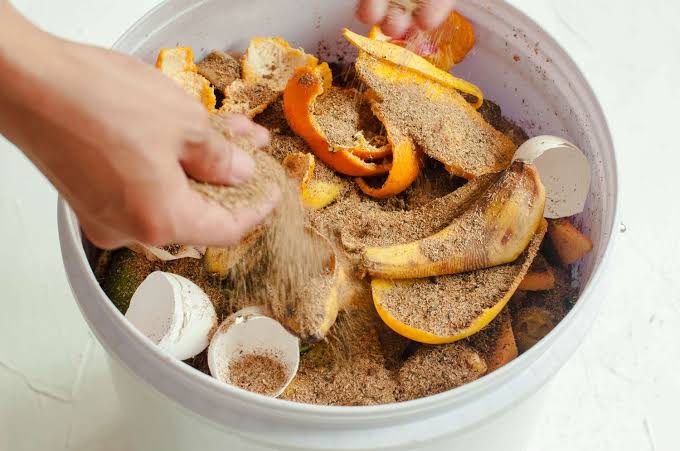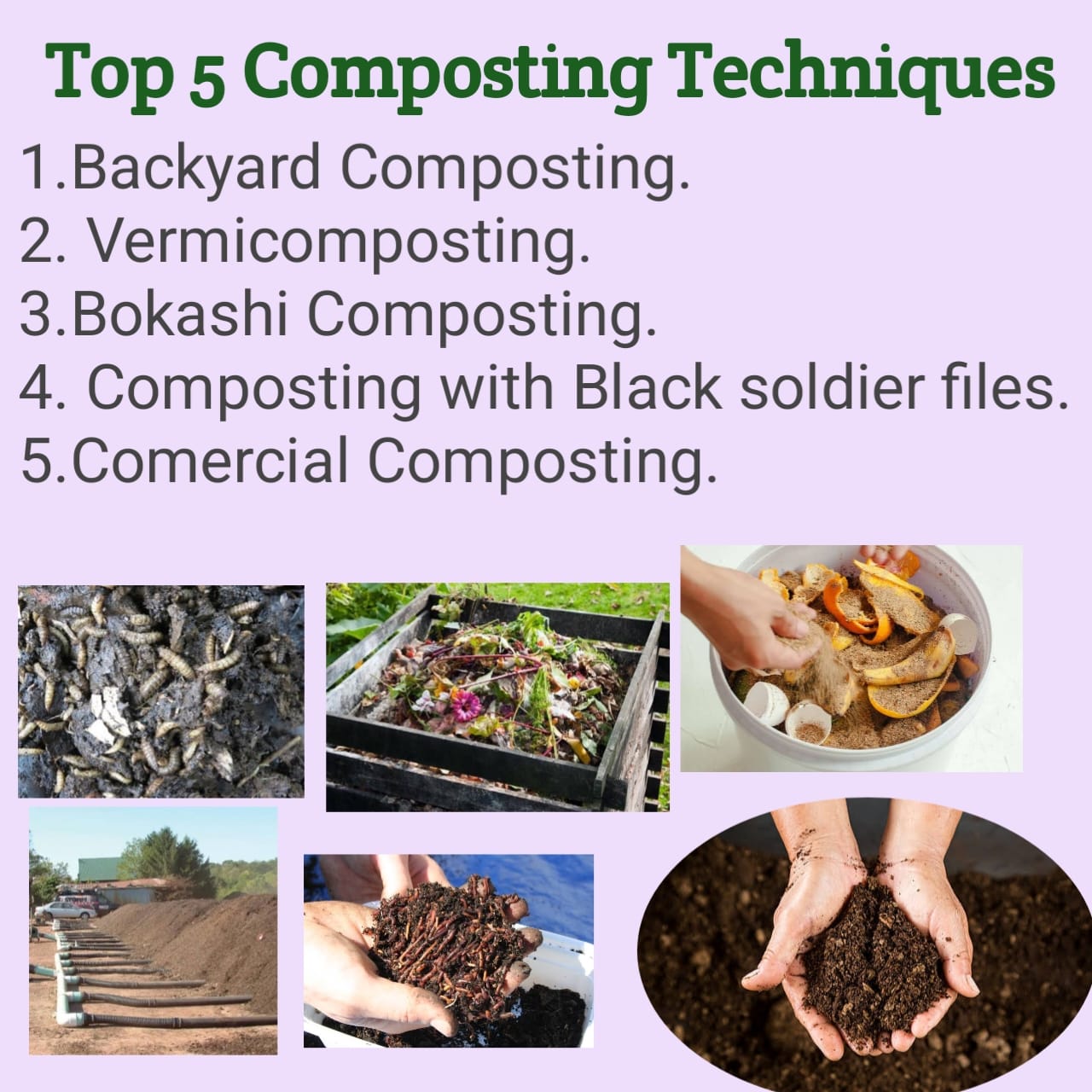Learn about Top 5 Composting Methods, and their benefits for the environment and your garden.

Composting is an environmentally-friendly and sustainable way to dispose of organic waste while creating nutrient-rich soil for gardening and farming. Composting can be done in a variety of ways, from simple backyard composting to large-scale commercial operations. In this article, we will discuss the top 5 composting methods, their benefits, and how to get started.
here are some Composting methods which have best results:
1.Backyard Composting:
Backyard composting is the most common and accessible method of composting. It involves creating a pile or bin in your backyard where you can place your organic waste, such as food scraps, leaves, grass clippings, and other yard waste. The compost pile needs to be turned regularly and kept moist to ensure that the organic materials break down properly. Backyard composting is an affordable and easy way to reduce your carbon footprint, produce high-quality soil, and create a more sustainable lifestyle.

To get started with backyard composting, you will need a compost bin or pile, which can be made from a variety of materials, including wood, wire mesh, or plastic. You will also need to gather organic materials, such as food scraps, leaves, and grass clippings. Be sure to avoid meat, dairy, and other animal products, as these can attract pests and rodents to your compost pile. You can add a compost accelerator, such as compost tea or manure, to speed up the composting process.
2.Vermicomposting:
Vermicomposting is also one of the composting methods , a type of composting that uses worms to break down organic waste into nutrient-rich soil. It is a popular method of composting for people who live in apartments or have limited outdoor space. Vermicomposting can be done indoors using a special bin called a worm bin, which is designed to house and cultivate worms.

To get started with vermicomposting, you will need a worm bin, which can be purchased or made from a variety of materials, such as plastic, wood, or metal. You will also need to gather organic materials, such as food scraps, coffee grounds, and shredded paper, to feed your worms. The worms will eat the organic material and convert it into nutrient-rich soil, which can be used to fertilize indoor plants or outdoor gardens.
Also Read Here: Vermicomposting – Simple process of Composting.
What is vermicomposting? How to make vermicomposting?
3.Bokashi Composting
Bokashi composting is a Japanese composting methods that uses a special mix of microorganisms to break down organic waste. It is a type of anaerobic composting, which means that the composting process takes place without the presence of oxygen. Bokashi composting is a great way to compost food waste, including meat, dairy, and other animal products, which are typically not recommended for backyard composting.

To get started with bokashi composting, you will need a bokashi composting kit, which includes a bucket, bokashi bran, and a spigot. You will also need to gather organic materials, such as food scraps and other kitchen waste. The bokashi bran is added to the organic material in layers, and the mixture is allowed to ferment for several weeks. Once the fermentation process is complete, the compost can be buried in the soil or added to a backyard compost pile.
to know more about bokashi Read here: Bokashi Composting
4.Composting with Black Soldier Flies:
Composting with black soldier flies is a unique and effective way to compost organic waste, including food scraps and animal manure. Black soldier flies are a type of fly that is attracted to organic material, and their larvae are voracious eaters that can break down organic waste quickly and efficiently. Composting with black soldier flies is an effective way to reduce waste, produce high-quality soil, and reduce greenhouse gas emissions.

To get started with composting with black soldier flies, you will need a special bin or container designed to house the larvae of the flies. You will also need to gather organic waste, such as food scraps and animal manure, to feed the larvae. The larvae will consume the organic material and turn it into nutrient-rich frass, which can be used as fertilizer. Composting with black soldier flies is a low-maintenance method of composting, as the larvae require minimal attention and care.
5.Commercial Composting:
Commercial composting is a large-scale composting method that is typically used by municipalities, businesses, and other organizations. Commercial composting facilities are designed to process large volumes of organic waste, including food scraps, yard waste, and other materials. The compost produced by commercial composting facilities is often used by farmers and gardeners to improve soil quality and fertility.

To get started with commercial composting, you will need to contact a local composting facility or waste management company that offers commercial composting services. You will also need to gather organic waste, such as food scraps and yard waste, to send to the composting facility. Commercial composting is an effective way to reduce waste, promote sustainability, and create a more eco-friendly business or organization.
Benefits of Composting:
Composting offers a wide range of benefits for both individuals and the environment. Some of the main benefits of composting include:
Reducing waste: Composting diverts organic waste from landfills, where it would otherwise produce methane, a potent greenhouse gas.
Improving soil quality: Compost is a rich source of nutrients that can be used to improve soil quality and fertility, leading to healthier plants and higher yields.
Saving money: Composting can help reduce waste disposal fees and the need to purchase expensive fertilizers and soil amendments.
Conserving water: Compost can help soil retain moisture, reducing the need for irrigation and conserving water.
Promoting sustainability: Composting is a sustainable practice that promotes environmental responsibility and reduces the carbon footprint of individuals and organizations.
Also Read : Top 10 Benefit of composting.
Conclusion:
Composting is a simple and effective way to reduce waste, improve soil quality, and promote sustainability. There are many different composting methods available, from backyard composting to commercial composting. Each method has its own benefits and can be adapted to suit the needs of different individuals and organizations. By composting, we can take a small step towards creating a more sustainable and eco-friendly world.
we are providing useful information of composting on solar. to know more visit our website : klimrus.
